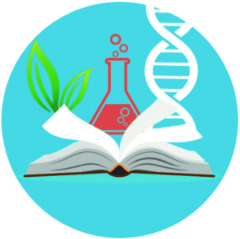Introduction to Animals Worksheet
Circle the correct response.
1. Animals are [ heterotrophs / autotrophs ]
2. [ All / Most ] animals are multicellular.
3. The cells in the skin of your hand are [ bigger than / the same size as ] the cells in your heart.
4. Organisms that have 2 copies of each chromosome are [mobile / diploid ]
5. The absence of a cell wall allows animals [ mobility / diploidy ]
6. A hollow ball of cells that forms after fertilization is called a [ blastula / mesoderm ]
7. In all animals except [ humans / sponges ] a zygote undergoes divisions to become a blastula.
8. The cells of animals are organized into functional units called [ blastula / tissues ]
Matching:
| 9. ______ Ectoderm | a. lining of the digestive tract, digestive organs
|
| 10. ______ Mesoderm | b. outer layer of skin and sense organs
|
| 11. ______ Endoderm | c. most of the skeleton, muscles Match the body plan to its description |
| 12. ______ radial | d. body that is irregular shaped
|
| 13. ______ bilateral | e. has a distinct right and left half
|
| 14. ______asymmetry | f. body parts arranged around a central axis, like the spokes of a bicycle wheel |
What symmetry do these animals have?
15. ______________
16. ____________________
17. Segmented animals are constructed from a series of repeating units called [segments /vertebrates]
18. Evidence of segmentation in human beings can be seen in the [ skin / backbone ]
Match the name of the Phylum to the organism:
| a. vertebrates b. segmented worms c. flatworms d. jellyfish e. sea stars f. sponges g. clams h. roundworms i. insects | 19. _____ Cnidaria 20. ______ Mollusca 21. _____ Annelida 22. _____ Chordata 23. ______Nematoda 24. ______Platyhelminthes 25. ______ Porifera 26. ______Arthopoda 27. ______Echinodermata |
Animal Body Systems
For each term below, indicate what body system it relates to. Body Systems
| 28. Gastrovascular Cavity ___________________________ 29. Ganglia ____________________________ 30. Hermaphrodite ____________________________ 31. Blood vessels ____________________________ 32. Exoskeleton ____________________________ 33. Gills 34. Anus 35. Nerve Net ____________________________ 36. Hydrostatic ____________________________ 37. Gametes ____________________________ 38. Flame cells 39. radula 40. trachea & spiracles |
|
Revised from : www.biologycorner.com
